In Kibale National Park, one of the most well-liked attractions is the chimpanzee habitat experience. The park is unique because it is one of the few locations where visitors can participate in both the standard chimpanzee trekking and the chimpanzee habituation experience.
Primate-focused travelers flock to Uganda mostly to track chimpanzees and gorillas. However, a brand-new item that is far more intriguing has been added to the list which is habituation.
Chimpanzee habituation refers to the process of making chimps used by human beings around them. It takes about 2 years to complete the process. Chimpanzee trekking allows tourists only one hour with the chimps after locating them. During the chimpanzee habituation process, tourists spend the whole day with the chimps.
Visitors can go into the forest with researchers as part of the chimpanzee habituation experience. Following and observing the chimpanzee groups involved is both fascinating and demanding because they are less habituated to human presence than the primate groups encountered on the primate walk.
Early visitors can watch chimpanzees leaving their nests in the morning before feeding, copulating, hunting breastfeeding resting patrolling, and displaying until it is time to build new nests in the evening
A park guide will typically give a briefing before the start of chimpanzee tracking in the morning. A park ranger and a guide accompany visitors as they enter the woodland. By tracing the trails left behind, the rangers and guides can locate the chimpanzee groups. The familiar faces of the guides, who ensure their protection, are immediately recognized by habituated chimpanzees. There are two tracking sessions every day, one in the morning and one in the afternoon, in the virtual parks and reserves where travelers can go to see chimpanzees.
Since the dry season is characterized by warm and scorching temperatures, chimpanzees are more active in the morning when they go out for feeding and are present throughout the jungle. They wander in search of protection to lean away from the sun and search for ripe fruits. Many of the members cease traversing the forest in the afternoon while they are dormant and resting in the shelters, which limits sightings.
Chimpanzee habituation rules.
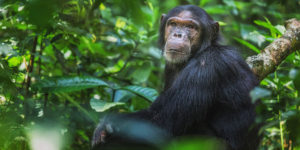
These rules and guidelines were created to protect you from damage while working on your project and to guarantee that the chimpanzee habituation experience is successful in all national parks that conduct chimpanzee tracking and habituation. The restrictions are divided into two categories: the ones that pertain to visitor safety while tracking, and those that pertain to chimpanzee welfare and the ecosystem as a whole.
These were created in various categories to protect both the chimpanzees and the visitors, which is a crucial response rule to follow when tracking as you enter their natural habitat in the forest. As a result, they must undergo a two-year habituation training program on how to approach humans in their forest and not run away when they visit.
Trackers should follow the rules given to them by the ranger and input them at the orientation and during the trek.
Chimpanzees should not be provoked because they are wild animals and should have the freedom to live in their natural habitat. They are tough and can ambush you without your knowledge.
Eating, drinking, and smoking in the presence of the apes is not allowed, and disposing of liters in the forest is prohibited
Travelers who are ill are not permitted to do tracking or even chimpanzee habituation. Since chimpanzees have 98% of human DNA, they are easily exposed to airborne infections like the flu, cough, and other ailments that affect people, which can cause them to become ill and die, decreasing their population.
Flash cameras are prohibited while taking pictures or movies of chimpanzees because they startle them and run away.
To enjoy your chimpanzee habituation experience, always proceed in the direction that guides and rangers are directing you. Doing otherwise will put you at risk of getting separated from your group.
If a traveler needs to relieve themselves, they should do so off the trail after burying their waste 30 cm deep and using used tissue.
When approaching the chimpanzees, always speak quietly so as not to startle or disturb them when they are socializing with one another.
You should always stay in the group to guarantee your safety in the forest since it harbors a variety of wild animals that are carnivorous and dangerous.
Chimpanzee habituation experience can last for long hours or even the whole day while in the jungle with the chimpanzees that’s why children below the age of 15 years are not allowed to go for habituation.
Trackers have an hour to engage with them and observe their distinctive characteristics. In other words, since chimpanzees are wild animals with unique habits and have the potential to band together and attack you, it is beneficial for them not to feel scared and bothered by humans.
Essentials to carry on chimpanzee habituation safari
There are several important items you should remember to carry in your safari bag when getting ready to go for a chimpanzee tracking and habituation trip, and these include the following.
- A waterproof safari bag to safeguard your travel belongings
- Wear long-sleeved clothing to shield yourself from insects, thorns, and thickets.
- For muddy, rough trails, bring sturdy, comfortable hiking shoes.
- Sunglasses and a shelter to shield you from the sun.
- Don’t forget to bring a camera with extra batteries, a hiking stick, and binoculars to take in the fantastic experience and get a close-up glimpse of the birds.
- Since chimpanzees are wild animals and they live in a natural forest where you can get injured by any forest insect, you should pack insect repellent if you want to be safe when visiting them.
- Because rain can fall at any time of year because this is a tropical rain forest, always pack warm clothing.
- To be able to engage in chimpanzee habituation, which is a full-day event, needs you to carry a drinking energizer to permit your full-day journey, so make sure you bring enough mineral water, snacks, and packed meals.
Best time to track chimpanzees
The tracking and habituation of chimpanzees occur all year round. Despite the dirt, the rainy season is the perfect time to search for chimpanzees. Chimpanzees typically go farther into the forests in search of food and shelter during the dry season. The woodlands are covered in greenery and fruits during the rainy season, which limits the chimpanzees’ ability to move around. Without making a long walk, visitors can find them quickly. Visitors are always advised to reserve their chimpanzee permits months in advance. Depending totally on where you go tracking in Uganda or Rwanda, there is a daily cap on the number of persons who can follow a certain chimpanzee community. However, each village typically has 6 residents.
Other activities in the park
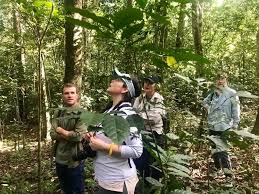
You should make sure to do other things at this park besides being accustomed to chimpanzees. There are many additional species in Kibale National Park along with the 12 species of primate found in the park, including the Blue Monkey, L’Hoest’s Monkey, and Red Colobus Monkey.
In addition to the several primate species found in the park, other wild animals can be seen when on a nature walk, such as the mammals Red and Blue Duikers, Sitatungas, Giant Forest Hogs, Bushbucks, Bushpigs, African Buffalo, and Common Warthogs. Carnivores include two types of otters, lions, leopards, African golden cats, and various types of mongooses.
Over 325 bird species have been identified in the area, including the Ground Thrush, an endemic to Kibale National Park, as well as Western Tinkerbird, African Grey Parrot, and Olive Long-tailed Cuckoo. Elephants can be found in the park as well. View our three-day vacation to Kibale to relive the exhilarating experience of the park and woodland attractions or 5 days tour to combine both gorillas and chimpanzee excursions.

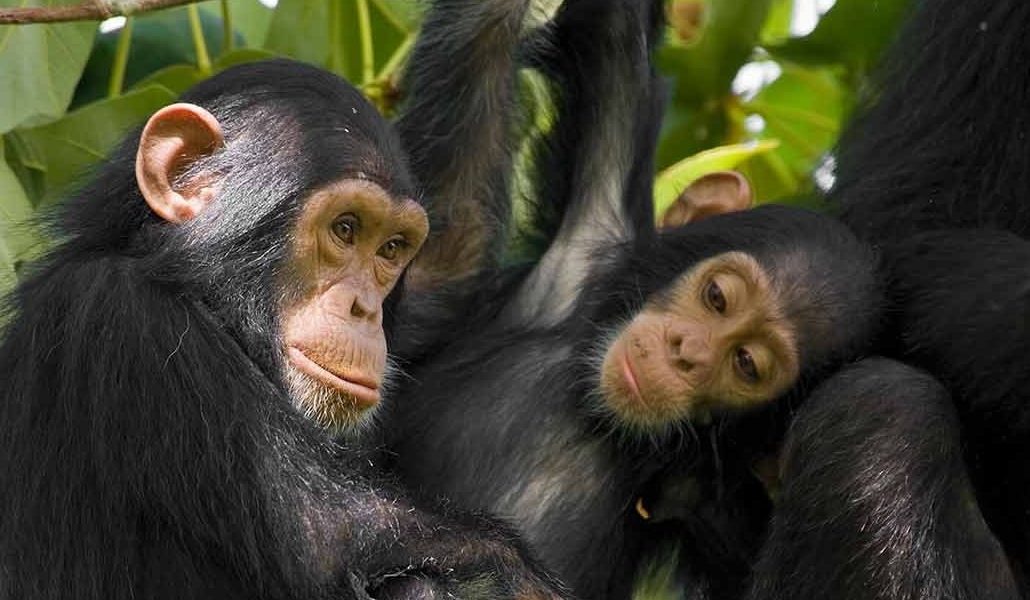
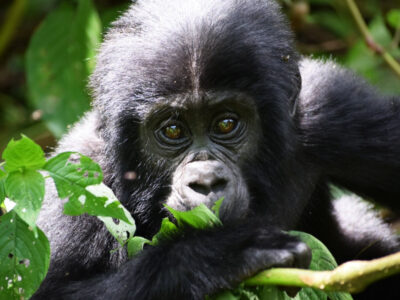
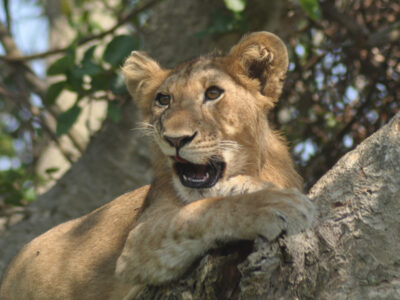
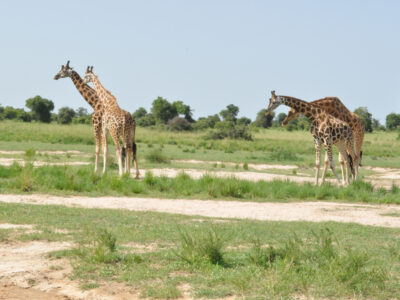
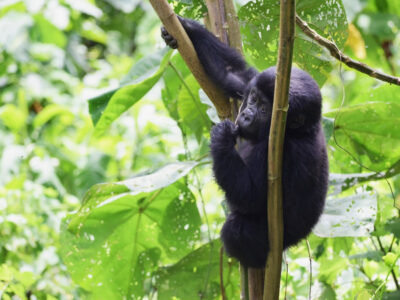
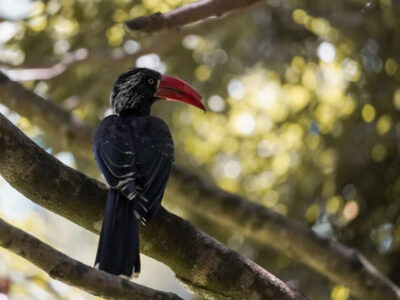
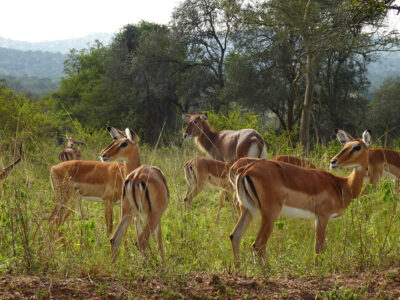
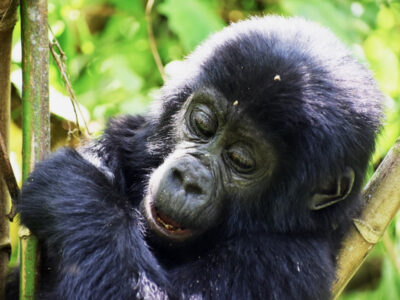
One Reply to “Chimpanzee Habituation experience in Kibale National Park”